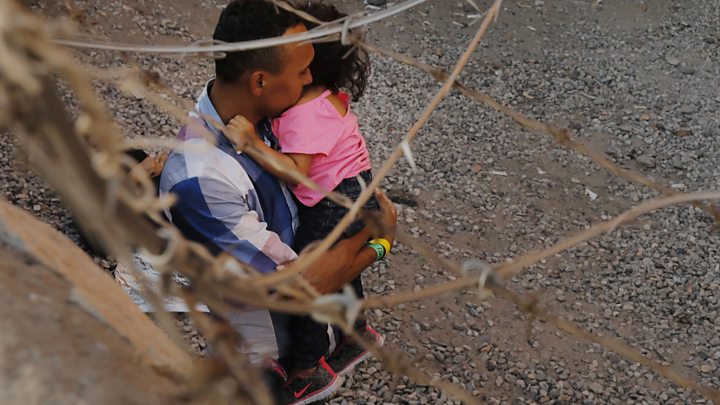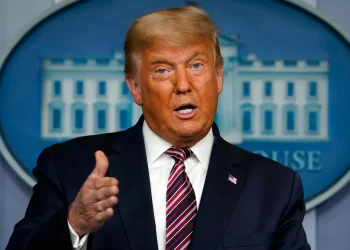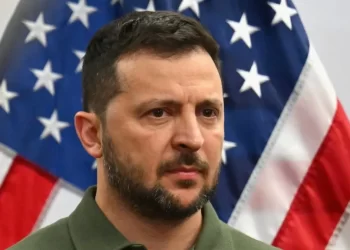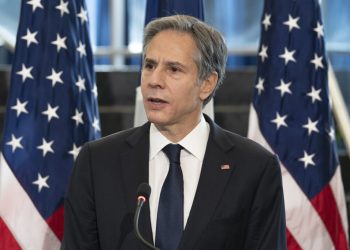US opposition politicians and aid agencies have questioned a decision by President Donald Trump to cut off aid to three Central American states.
Mr Trump ordered the suspension of aid payments to El Salvador, Guatemala and Honduras to push their governments to stop migration into the US.
Critics say the decision will hurt programmes that already aim to persuade people to stay at home.
Congress may seek to stop the aid being redirected elsewhere.
US officials say the immigration system at the border with Mexico is already at breaking point yet the administration wants to increase the number of asylum seekers sent back over the border fivefold – from 60 a day to 300.
There has been a huge increase in asylum seekers fleeing violence in El Salvador, Honduras and Guatemala. The three nations are where most of the migrants on the US southern border come from.
President Trump has also said he is likely to close the border if Mexico does not do more to stop migrants crossing.
How much money is being cut?
“We are carrying out the President’s direction and ending FY [fiscal year] 2017 and FY 2018 foreign assistance programs for the Northern Triangle,” a state department spokesperson was quoted as saying by Reuters news agency, declining to give further details.

According to the Washington Post, at stake is nearly $500m (£383m) in 2018 funds plus millions more left over from the previous fiscal year. A Reuters source put the overall figure at about $700m.
In 2017, Guatemala received over $248m while Honduras received $175m and El Salvador $115m.
“I’ve ended payments to Guatemala, to Honduras and El Salvador,” Mr Trump told reporters on Friday.
“No money goes there anymore… We were paying them tremendous amounts of money and we’re not paying them any more because they haven’t done a thing for us.”
What impact could the cuts have?
Aid advocates argue that the best way to stem migration from the region is to stimulate economic development and reduce violence there, and that it is too early to judge the impact of the aid, which was boosted in 2016 under President Barack Obama.
Cutting off aid is “shooting yourself in the foot”, Adriana Beltrán, director of citizen security at the Washington Office on Latin America human rights research group, was quoted as saying by the New York Times.
“There are long-term challenges that are going to need a long-term sustainable solution,” she added.
“You can have a discussion as to how we can ensure that the aid is effective, that assistance is not going to supporting corrupt governments.”
A group of House Democrats visiting El Salvador condemned Mr Trump’s move in a joint statement, saying that Mr Trump’s approach was “entirely counterproductive”.
Senator Bob Menendez, the top Democrat on the Senate Foreign Relations Committee, condemned the “reckless announcement”.
Can Congress stop the cuts?
The state department said it would “engage Congress in the process”, suggesting that lawmakers would need to approve the cuts.
However, according to congressional staffers quoted by the Washington Post, the US president has “some wiggle room to reprogram funds”.
Adam Isaacson, a senior official at the Washington Office on Latin America, said presidents had previously shied away from reprogramming money because it irritated lawmakers who could retaliate by declining to fund key administration projects.
–
Source; BBC











